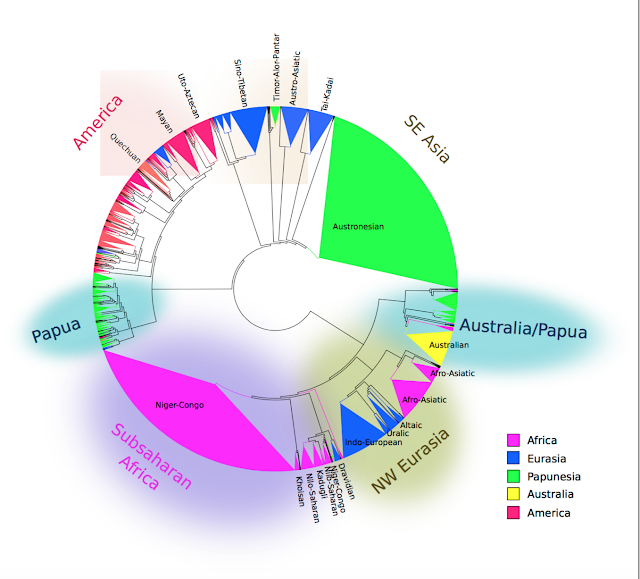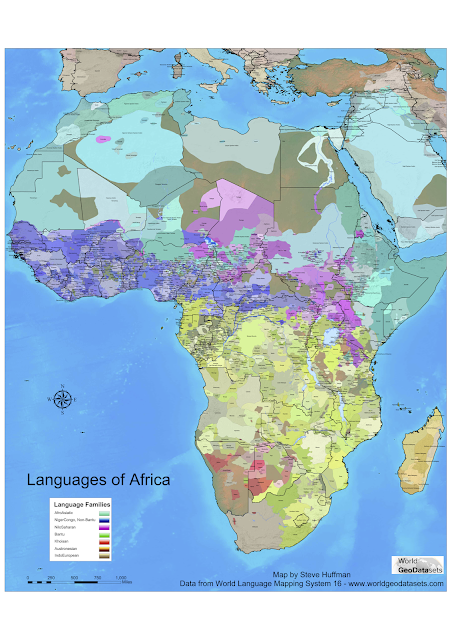Free online lectures on language evolution by Russell Gray
Every year the Max Planck Institute for Psycholinguistics and the Radboud University of Nijmegen invite one or several prominent scholars to give a series of talks on a current topic of their research. This is a great way to learn about important contemporary research in linguistics and the cognitive sciences. I just realised that I had not informed you about the fact that one can now find free online videos of these lectures online. In particular, I'd like to recommend last year's talk, which was on language evolution, a hot topic that I think will interest many readers of this blog.
In 2014, they invited Russell Gray and he gave three talks on the topic of
In this lecture series Professor Gray argues that the research fields of animal cognition, language evolution and cultural evolution have all been blighted by special pleading and a tendency to invoke miraculous leaps. He further argues that a rigorous application of modern Darwinian evolutionary thinking and methods is required to explain the evolution of language, culture and cognition.
In 2014, they invited Russell Gray and he gave three talks on the topic of
No Miracles! A Darwinian view of the evolution of cognition, language and culture
 |
| Photo of Russell Gray at the Nijmegen lectures, taken from Seán Roberts post on the excellent blog Replicated Typo. |
You can find full videos of the talks here, totally free.
If you want to read the abstracts for each talk, they're here.
Russell Gray is an evolutionary biologist from New Zealand He is a professor at the University of Auckland and now the director of a new department of linguistics in the Max Planck Society - the Department of Linguistic and Cultural Evolution at the MPI for Science of Human History in Jena. He has published over 100 journal articles and book chapters including eight papers in Nature and Science.
p.s. If one is curious to read a publication from someone who is not in agreement with Russell Gray, may I recommend this free online publication on the origins of language by Johan J. Bolhuis , Ian Tattersall, Noam Chomsky and Robert C. Berwick.




Comments
Post a Comment